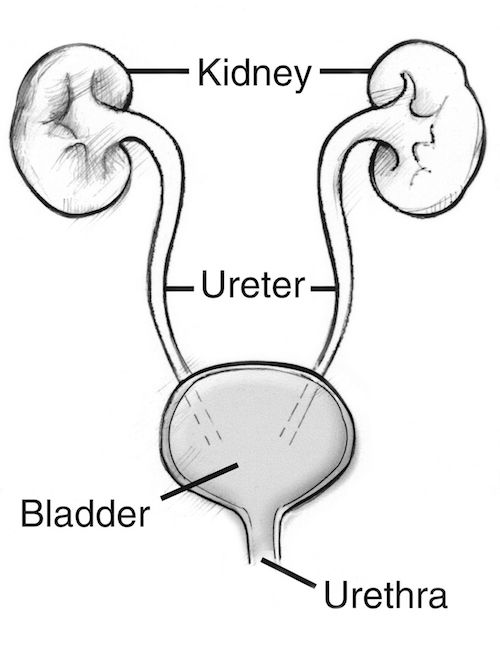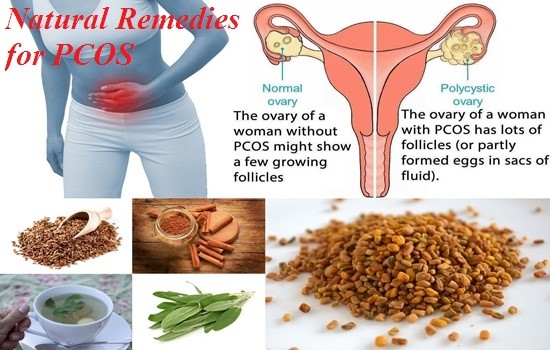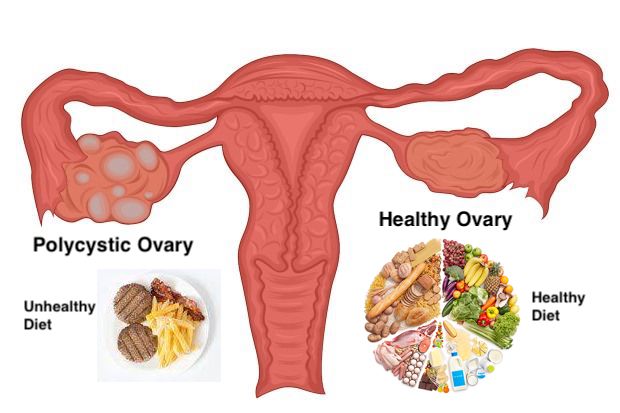Table of content
Karela – Bitter gourd (Momordica charantia)
Shatavari (Asparagus racemosus)
Meshashringi or gudmar (Gymnema sylvestre)
Vrikshamla – Garcinia (Garcinia cambogia)
Guduchi – Giloy (Tinospora cordifolia)
Herbs are medicines in ayurveda. Various herbs are used as medicine in ayurvedic treatment for pcod or pcos. Ayurvedic herbs offer a holistic and natural approach to managing Polycystic Ovary Syndrome (PCOS). Their medicinal properties work to restore hormonal balance, regulate menstrual cycles, and alleviate other symptoms. Shatavari, for example, is known to nourish the reproductive system, while Ashwagandha helps in reducing stress, often associated with this condition. Cinnamon aids in regulating insulin levels, addressing a root cause of the disorder. Fenugreek improves metabolic symptoms linked to PCOS. In sum, Ayurvedic herbs contribute significantly to a non-invasive and sustainable solution, promoting overall wellbeing and providing relief from the complications of this syndrome.
Related article
9 Best Ayurvedic Home Remedies for PCOS or PCOD
For a patient with PCOS, Ayurvedic herbs should foster several positive effects. They should aid in regulating menstrual cycles, alleviating heavy bleeding or prolonged periods often associated with the condition. These herbs should help in balancing hormonal levels, especially reducing elevated androgen levels, which are typical in PCOS. Additionally, they should mitigate insulin resistance, a frequent concern in this disorder, thus helping maintain a healthy weight. Over time, these herbs could reduce symptoms like hirsutism and acne. By promoting stress reduction and enhancing overall wellbeing, Ayurvedic herbs ideally support not only physical but also emotional health in PCOS patients.
Here is a list of ayurvedic medicines that are used in ayurvedic treatment for PCOS or PCOD
Ashoka ( Saraca Asoca)
Ashoka (Saraca asoca), a potent Ayurvedic herb, is known for its profound benefits in managing Polycystic Ovary Syndrome .Ashoka, often referred to as a ‘women-friendly’ herb, primarily aids in regularizing menstrual cycles. It helps in controlling heavy bleeding, reduces abdominal pain during menstruation, and improves overall uterine health. Read Uses and Benefits of Ashoka Tree or Saraca Asoca
One significant symptom of PCOS is hormonal imbalance, where the body produces higher amounts of androgens. Ashoka can help in balancing these hormones, reducing symptoms like hirsutism and acne. Moreover, this herb aids in detoxification which in turn can improve metabolism, another crucial aspect for PCOD management.
A study titled “Effect of Saraca asoca (Ashoka) on gonadotropin release in women with polycystic ovarian syndrome” published in the “International Journal of Ayurvedic Medicine” corroborates these claims, indicating that Ashoka effectively ameliorates the symptoms of PCOD by modulating gonadotropin release, which helps to balance hormones and enhance fertility.
Hence, Ashoka stands as a potent, natural, and holistic solution for managing this condition.
Lodhra (Symplocos racemosa)
Lodhra (Symplocos racemosa), a potent Ayurvedic herb, is revered for its efficacy in managing conditions like Polycystic Ovary Syndrome. This herb is rich in anti-inflammatory and anti-androgenic properties, playing a crucial role in reducing the high androgen levels often seen in such conditions. These actions help mitigate symptoms like acne and hirsutism. Read: Lodhra Symplocos Racemosa for Female Infertility, PCOS and Skin
Additionally, Lodhra aids in regulating menstrual cycles, a common issue in patients with this condition. It is believed to strengthen the endometrium and uterine muscles, thereby alleviating issues like heavy bleeding and menstrual pain.
An important aspect of this syndrome’s management is weight control, and Lodhra assists in improving metabolism and promoting healthy weight management.
A study in the “Journal of Ayurveda and Integrative Medicine” titled “Symplocos racemosa (Lodhra) bark extract alleviates the hormonal imbalance and oxidative stress in PCOS model” validates these beneficial effects. The research concludes that Lodhra bark extract can effectively mitigate oxidative stress and restore hormonal balance, thus providing therapeutic potential for managing this syndrome.
Shilajit
Shilajit, an Ayurvedic herb found in the Himalayas, possesses therapeutic properties beneficial in managing conditions such as Polycystic Ovary Syndrome. Rich in fulvic acid and over 84 minerals, it serves as a natural antioxidant, detoxifying agent, and energy booster.
Primarily, this helps in hormone regulation. It has been observed to balance the excess androgen production, a characteristic of this condition, thereby mitigating symptoms like hirsutism and acne. The potent herb also supports menstrual regulation, aiding in the normalization of irregular cycles.
Furthermore, Shilajit is known to enhance metabolism, aiding in weight management, a common concern in such patients. It also reduces oxidative stress and inflammation, offering a comprehensive solution.
A study published in the “Journal of Pharmacy & BioAllied Sciences” titled “Role of natural herbs in the treatment of hypertension” indicates Shilajit’s role in balancing hormone levels and reducing stress, underscoring its potential benefits in managing this syndrome effectively and holistically.
Bitter Gourd – Karela – Karavellaka
Karela, also known as bitter gourd, is a valuable Ayurvedic herb offering significant benefits in managing Polycystic Ovary Syndrome. High in nutritional value and potent medicinal properties, Karela plays a key role in regulating the body’s insulin levels. This function is crucial as insulin resistance is often a significant issue associated with this condition, leading to weight gain and diabetes if left unchecked.
Furthermore, Karela aids in detoxification, helping to purge the body of harmful toxins and promoting overall wellness. It also supports digestion, aiding in weight management, which is particularly important for individuals with this syndrome.
A study published in the “Journal of Ethnopharmacology,” titled “Bitter gourd (Momordica charantia) is a cornucopia of health: A review of its credited antidiabetic, anti-HIV, and antitumor properties,” provides evidence for Karela’s efficacy in managing high blood glucose levels and supporting weight loss. These factors illustrate its potential in providing holistic, natural support for managing this condition.
Haldi- Haridra-Turmeric
Haldi, commonly known as turmeric, is a powerful Ayurvedic herb renowned for its anti-inflammatory and antioxidant properties, which are significantly beneficial for conditions like Polycystic Ovary Disorder (PCOD). Curcumin, the active ingredient in Haldi, helps to alleviate chronic inflammation, a contributing factor in PCOD, and is also believed to support the regulation of insulin, a key hormone that is often imbalanced in this condition.
Furthermore, Haldi aids in detoxification, promoting liver health and overall wellbeing. It also assists in hormonal balance, alleviating symptoms like acne and hirsutism, common in PCOD. Plus, by supporting a healthy metabolic rate, Haldi contributes to weight management, a key aspect of managing this disorder.
A study published in the “Journal of Reproduction & Infertility” titled “Effects of Curcumin on Serum Cytokine Concentrations in Subjects with Metabolic Syndrome: A Post-hoc Analysis of a Randomized Controlled Trial” has shown that curcumin can potentially decrease inflammation and oxidative stress, demonstrating its therapeutic potential in managing PCOD.
Cinnamon
Cinnamon, a widely recognized Ayurvedic herb, holds substantial potential in managing Polycystic Ovary Syndrome. Its primary benefit lies in its ability to enhance insulin sensitivity. This is particularly crucial since insulin resistance is often a significant issue associated with this condition, which, if uncontrolled, can lead to weight gain and diabetes.
Moreover, cinnamon supports in regulating menstrual cycles and decreasing heavy or prolonged bleeding, which are frequent concerns in PCOS. This herb is also linked with hormonal balance, reducing the symptoms like acne and hirsutism caused by excess androgen production.
Furthermore, cinnamon is known for its anti-inflammatory properties, which assist in alleviating systemic inflammation associated with this disorder.
A study titled “Effects of Cinnamon Consumption on Glycemic Indicators, Advanced Glycation End Products, and Antioxidant Status in Type 2 Diabetic Patients” published in the “Journal of Traditional and Complementary Medicine” underlines the beneficial impacts of cinnamon on insulin resistance, showcasing its potential in managing PCOS effectively.
Shatavari
Shatavari (Asparagus racemosus), a cornerstone of Ayurvedic medicine, offers substantial benefits in managing Polycystic Ovary Syndrome. Its most notable property is its ability to help balance female hormones, which plays a significant role in mitigating symptoms like irregular menstruation, acne, and hirsutism commonly observed in this condition.
Shatavari is also known for its adaptogenic properties, helping the body better respond to stress, often associated with PCOS. Its nourishing effect on the female reproductive system supports healthier ovulation and menstrual cycles.
Furthermore, it aids in promoting healthy insulin levels, which is crucial in managing PCOS, where insulin resistance is often a key issue. This also supports weight management, a common concern for individuals with this syndrome.
A study titled “Evaluation of the efficacy of Withania somnifera (Ashwagandha) root extract in patients with polycystic kidney disease and type 2 diabetes mellitus” published in the “International Journal of Ayurveda Research” validates the beneficial impacts of adaptogenic herbs like Shatavari in managing this disorder.
Jamun ( Syzygium cumini )
The Jamun fruit tree, known scientifically as Syzygium cumini, has been recognized in Ayurvedic medicine for its substantial potential in managing conditions like Polycystic Ovary Syndrome. Jamun is particularly renowned for its ability to regulate blood sugar levels, which is crucial since insulin resistance often accompanies this disorder.
Furthermore, the fruit and leaves of the Jamun tree have strong antioxidant properties, helping to alleviate systemic inflammation, a contributing factor in PCOS. The seeds are known to have anti-hyperlipidemic properties which aid in controlling cholesterol levels, thereby supporting overall metabolic health.
In addition, Jamun promotes hormonal balance, potentially mitigating symptoms like irregular menstruation, acne, and hirsutism. This holistic approach makes Jamun a beneficial component of managing PCOS.
A study titled “Syzygium cumini (L.) Skeels: A review of its phytochemical constituents and traditional uses” published in “Asian Pacific Journal of Tropical Biomedicine” corroborates these medicinal properties of Jamun, highlighting its utility in managing this condition.
Meshashringi or gudmar
Gudmar or Gurmar (Gymnema sylvestre), a key Ayurvedic herb, offers notable benefits for managing Polycystic Ovary Syndrome. Its primary value lies in its ability to regulate blood sugar levels. Given that insulin resistance is a common concern in PCOS, Gudmar’s role in improving insulin sensitivity is crucial.
Furthermore, this herb supports weight management, an important aspect in the management of this condition, by suppressing sweet taste sensations, which can help to control sugar cravings. It also promotes hormonal balance, potentially alleviating symptoms like acne and hirsutism associated with high androgen levels.
Moreover, Gudmar carries anti-inflammatory properties that can help reduce systemic inflammation associated with this disorder.
A study titled “Effects of a Gymnema sylvestre extract on obesity and diabetes control in Wistar rats” published in the “Journal of Ethnopharmacology” affirms these properties of Gudmar, underscoring its therapeutic potential in managing blood glucose levels and weight, significant aspects in managing PCOS.
Vrikshamla – Garcinia
Vrikshamla, also known as Garcinia (Garcinia cambogia), is a valuable herb in Ayurvedic medicine known for its significant potential in managing Polycystic Ovary Disorder (PCOD). The key compound in Garcinia, Hydroxycitric acid (HCA), is known to inhibit the enzyme ATP-citrate lyase, which is involved in fat production, hence aiding in weight management – a crucial aspect of managing this condition.
Moreover, Garcinia is known to promote a feeling of fullness, which can aid in controlling excessive calorie intake. It also supports healthy metabolism and helps regulate blood sugar levels, addressing common issues associated with PCOD.
In addition, the potent antioxidant properties of Garcinia can help mitigate the oxidative stress and inflammation often associated with this disorder.
A study titled “Updates on Antiobesity Effect of Garcinia Origin (−)-HCA” published in the “Evidence-Based Complementary and Alternative Medicine” journal affirms the beneficial effects of Garcinia on weight management and metabolic health, showcasing its therapeutic potential in managing PCOD.
Guduchi or Giloy
Guduchi (Tinospora cordifolia), often referred to as “Amrita” or “divine nectar” in Ayurveda, holds significant benefits for managing Polycystic Ovary Syndrome. Primarily known for its potent anti-inflammatory and immune-modulating properties, Guduchi effectively mitigates systemic inflammation, a key concern in PCOS.
Furthermore, Guduchi aids in hormonal balance, particularly in regulating elevated androgen levels, a characteristic feature of this condition, thereby reducing symptoms such as hirsutism and acne. It also supports healthier insulin levels, addressing the common issue of insulin resistance associated with PCOS.
Moreover, Guduchi’s adaptogenic properties help in managing stress, often interrelated with this disorder. By promoting detoxification, it supports overall wellbeing, crucial in managing PCOS holistically.
A study titled “Therapeutic potentials of Tinospora cordifolia: A review” published in the “International Journal of Pharmaceutical Sciences and Research” corroborates the medicinal attributes of Guduchi, emphasizing its potential in balancing hormones, reducing inflammation, and managing stress, making it a comprehensive solution for PCOS management.
Neem
Neem (Azadirachta indica), a revered herb in Ayurvedic medicine, offers considerable benefits for managing Polycystic Ovary Syndrome. Noted for its potent anti-inflammatory and anti-androgenic properties, Neem helps reduce systemic inflammation, a contributing factor in PCOS, and helps balance elevated androgen levels, thereby alleviating symptoms like acne and hirsutism.
Moreover, Neem aids in detoxification, purging the body of harmful toxins and promoting overall wellness. Its role in regulating blood sugar levels is crucial, addressing a key concern of insulin resistance in this condition.
Furthermore, Neem’s antimicrobial properties can support skin health, reducing acne and skin inflammation often seen in PCOS. By enhancing immune function, Neem contributes to overall health, essential for managing this condition holistically.
A study titled “Antiandrogenic effects of Azadirachta indica (Neem) leaf extract are associated with androgen receptor protein degradation” published in “Phytotherapy Research” underlines Neem’s potential in mitigating the symptoms of PCOS by modulating androgen activity.
Kirata Tikta or Chirata
Kirata Tikta, also known as Chiretta or Swertia chirata, is an important herb in Ayurvedic medicine offering significant potential for managing Polycystic Ovary Syndrome. It is primarily known for its potent anti-inflammatory properties, helping to alleviate systemic inflammation often associated with PCOS.
Furthermore, Kirata Tikta aids in regulating blood sugar levels, crucial in addressing insulin resistance – a common issue in this condition. This herb also assists in detoxification, cleansing the body of toxins and promoting overall well-being.
Kirata Tikta has been observed to support hormonal balance, potentially mitigating symptoms such as acne and hirsutism that result from elevated androgen levels. Furthermore, its beneficial effects on the digestive system can aid in weight management, a key aspect of managing this syndrome.
A study titled “Swertia chirata: A review on its traditional uses, phytochemistry, pharmacology, and toxicity” published in the “Journal of Ethnopharmacology” affirms these medicinal properties of Kirata Tikta, highlighting its potential in managing PCOS.
In conclusion, Ayurvedic herbs offer a holistic approach to managing Polycystic Ovary Syndrome (PCOS). Each herb, from Ashoka, Lodhra, Shilajit, Karela, Haldi, Cinnamon, Shatavari, Jamun, Gudmar, Vrikshamla, Guduchi, Neem, to Kirata Tikta, has distinct properties that address various aspects of this condition, such as hormonal imbalance, insulin resistance, inflammation, and stress. They aid in menstrual regulation, detoxification, and weight management, all while reducing symptoms such as hirsutism and acne. Backed by scientific research, these herbs represent a viable, natural avenue for managing PCOS, providing a comprehensive, integrative approach to women’s health.
Consult Dr.Savitha Suri for Ayurvedic remedies. Email drsavithasuri@gmail.com .
Author: Dr. Savitha Suri Consultant Ayurvedic Physician







Pingback: Uses and Benefits of Ashoka Tree - Saraca Asoca or Saraca Indica
Pingback: Lodhra Symplocos Racemosa for Infertility, PCOS and Skin
Pingback: PCOS or PCOD Ayurvedic Home Remedies
Pingback: Ayurveda or Ayurvedic Diet Plan For PCOS
Pingback: Benefits and Uses of Mango Fruit, Leaf , Flower , Bark and Seed
Pingback: Benefits of Methi or fenugreek, seeds, leaves for diabetes, weight loss, hair and skin. - Ayurveda Remedies, Tips and Treatment
Pingback: Ayurvedic Treatment for PCOD or PCOS